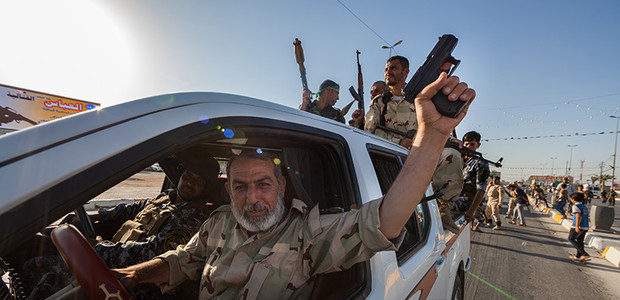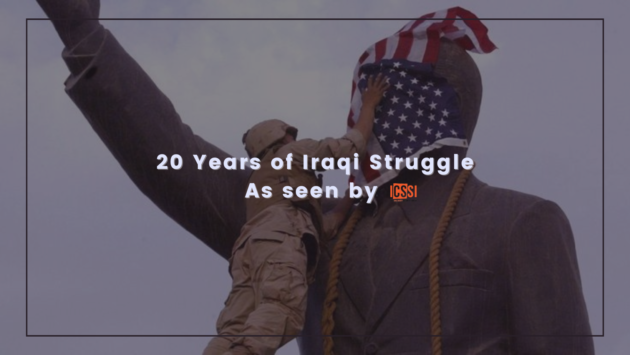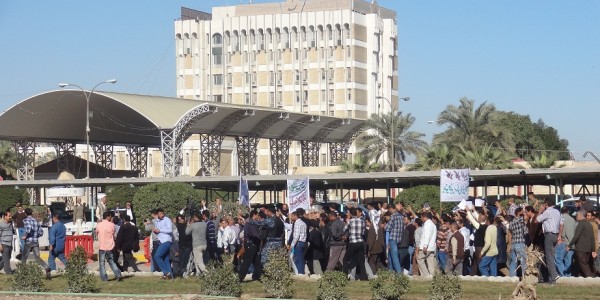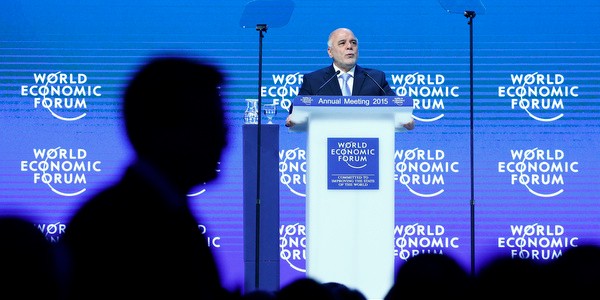Shooting For Political Stardom: Iraq’s Controversial Militias Fail To Agree On Unified Electoral Positions
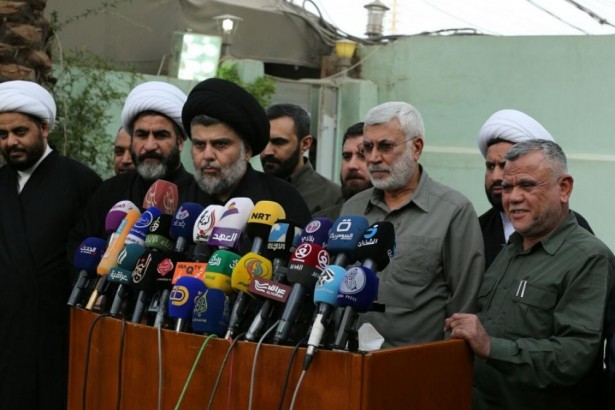 Leaders of the militias at a press conference in Najaf late last year. Source: Militias
Leaders of the militias at a press conference in Najaf late last year. Source: Militias
Comments made by influential leaders of the various Shiite Muslim militias often have the same impact as statements made by senior politicians and military, and it’s been clear for some time that they plan to use their popularity and importance to enter politics.
As the fight to push the Islamic State, or IS, group out of the country proceeds, and looks likely to end in success sometime in the next few months, the militias are looking toward their political futures.
“The militias will be present in politics in the same way they were present on the battlefield,” Qais al-Khazali, leader of one of the most feared and respected militias, the League of the Righteous, said last week. “In the same way that we win the battle against the IS group, we will win the fight against corruption and unemployment. Because the militias exist thanks to God’s will.”
Sources say that most recently the various militias had been negotiating alliances between themselves that they could capitalize on in upcoming Iraqi elections.
“Over the past few days there have been closed door meetings held to discuss the future of the militias and how they will participate in the elections,” said one source, who had to remain anonymous due to the secretive nature of the meetings. The militias discussed participating in Iraq’s upcoming provincial elections, currently due to be held in September 2017, and then federal elections, due to be held in April 2018. The idea of putting them all together on one electoral list was floated by Iranian advisers.
However, there are a lot of obstacles to getting the various militias, which are far from a homogenous group, to cooperate. Political tactics are very different from those on the battlefield.
For example, the militia led by local cleric, Muqtada al-Sadr, said they would pursue their own political project. Known as the Peace Brigades, this group says they will seek an alliance with the civilian groups that have been protesting against political corruption in Baghdad for months now, mostly, it should be acknowledged, at the behest of al-Sadr himself; they would even be open to a liaison with secular groups involved in the anti-corruption protests.
The same kinds of sentiment were expressed by the militias allied with the Islamic Supreme Council of Iraq, led by Ammar al-Hakim. This includes the Ansar al-Aqeeda and Ashura brigades as well as others. They all decided to stick with the Muwatin, or Citizen political coalition, that is already active in parliament and allied to the Islamic Supreme Council.
Meanwhile, as some analysts might expect, the militias known to be closer to Iran – this includes the League of the Righteous, Hezbollah in Iraq, the Jund Al Imam brigades and Harakat al-Nujaba – have decided they will enter into one alliance to contest elections. They will also be tied to former Iraqi prime Minister Nouri al-Maliki, who, despite being a controversial figure in Iraq these days, wants to return to power. The fact that Iran-allied militias prefer him as a candidate is a serious step toward his goal.
Meanwhile the cleric who started it all – the country’s leading Shiite Muslim authority, Grand Ayatollah Ali-Al-Sistani – has an altogether different opinion on the militias’ participation in politics. In 2014, with Iraq threatened by the IS group and the Iraqi military not responding appropriately to that threat, al-Sistani called for volunteers to form militias and defend the country. However, the elderly cleric has always insisted that the militias should only be temporary, insisting on calling them “volunteer militias”. He doesn’t like the idea of the militias going on to participate in Iraqi politics and has refused to receive those militia leaders who desire his endorsement for their political campaigns.
Al-Sistani has also announced that the militia closest to him, the Al Abbas brigade, won’t be going into politics.
“Al-Sistani is against the militia participation in politics and he was not so enthusiastic about the passing of the law that made them a semi-official part of the Iraqi military,” Jabr al-Mohammedawi, an independent Shiite Muslim cleric who teaches theology in Najaf, told NIQASH. “Al-Sistani would have preferred that the militias were retired and that they were given civilian jobs.”
In November last year, the Iraqi Parliament passed a law that made the volunteer militias a military force in their own right, separate from other established forces, such as the Iraqi army or police force. Some locals fear that the Shiite-majority volunteer militias could become just as powerful as Iran’s infamous Revolutionary Guards, which also began as a group of ideologically driven militias founded after Iran’s revolution in the late 1970s.
In fact, this law causes a stumbling block of a different kind for the militia leaders’ political ambitions. Laws on political parties in Iraq ban military organizations from running for election.
The Independent High Electoral Commission has already made an official statement on the matter, saying that the militias are military forces and that they cannot contest the elections.
Of course, the militia leaders want to argue that point. Those who have sacrificed and gained victories in battle have every right to enter politics, says Mohammed Naji Mohammed, a Shiite Muslim MP and a senior member of the Badr brigade militia.
“The popularity that the popular forces have means they should be allowed to contest the elections and fight the political, economic and service-related crises in Iraq, in the same way that they have fought the IS group,” Naji Mohammed told NIQASH. “In fact, many of their leaders were politicians before they volunteered to fight for the country,” he argues.
Apart from all of that, the Shiite Muslim militias’ political ambitions also present another danger. The various fighters have been united against the IS group but are far from in agreement on other issues. The fighters in these factions have influence in certain neighbourhoods and cities and during electioneering, will doubtless try to garner more in other territories. There are concerns that their political fighting could turn into actual violence as the different militias try and gain control over different, stable areas and voter groups.
In some previously peaceful mostly Shiite-Muslim areas there have already been examples of this kind of jockeying for power. Voters can only hope it is not a sign of things to come in Iraq’s next elections, which could prove to be the most important since 2003.

